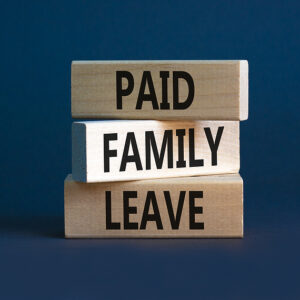It’s easy to understand why reforming Social Security and other programs has been nearly impossible. Many may not realize it, but it’s because of the payroll tax. Now, state governments are trying to use payroll taxes to fund family and medical leave entitlements — and workers will again come out on the losing end of this bargain.
When taxpayers see the dollars they put into a government program twice a month on their pay stubs, they want to ensure that money is there when they retire. Unfortunately, there never seems to be enough revenue to cover empty government promises, causing the inevitable worry that taxpayers will never see their contributions returned.
Still, hardworking Americans view their investment in the payroll tax throughout their entire working career as a safety net, one that affords them unfettered access to reap the benefits of the entitlement programs.
When we hit a debt limit crisis, a noble few attempt to rein in programs like Social Security to balance the budget and reduce skyrocketing debt. They propose changes and the public revolts. Politics ensue. Rinse and repeat.
State governments aren’t immune to these problems. Thirteen stereotypically tax-and-spend states and the District of Columbia have enacted medical and family leave programs, and these massive entitlement expansions are entering the heartland, all funded by payroll taxes.
Wisconsin Gov. Tony Evers is one of the latest to propose this new public benefit. Despite strong opposition from Wisconsin Manufacturers and Commerce, paid family leave garnered support from even the major Republican candidates for governor in last year’s primary. So, we’d be foolish to think this kind of proposal is dead on arrival with a Republican legislature looking to find a budget compromise with the governor.
Evers’ proposal gives one-time startup costs for his new explosion of government from the state’s massive $7 billion surplus. But going forward, Wisconsin workers would bear the burden through payroll taxes. Of course, the details of the impending payroll tax weren’t disclosed by the governor, they’d be discussed only after the program is set up, and tax increases are inevitable.
Many taxpayers don’t know this — because it isn’t explicitly written on their paycheck — but employers often match the funds paid into entitlement programs via state payroll tax. In D.C.’s paid-leave program, the employer, on paper, pays the entire family and medical leave program cost. But because of the workforce’s supply and demand, these employer matches don’t come out of employers’ pockets. A Congressional Budget Office paper from 2021 suggests employees bear nearly 60 percent of the employer’s payroll tax. It all points to increased lost income from taxpayers than they realize.
State legislators need to take note of the eternal Social Security debate in the nation’s capital. Once a program is paid by payroll taxes and the promise is out there, it’s nearly impossible to reform and rein in, and the public will want to see government live up to the promises they believe they paid.



